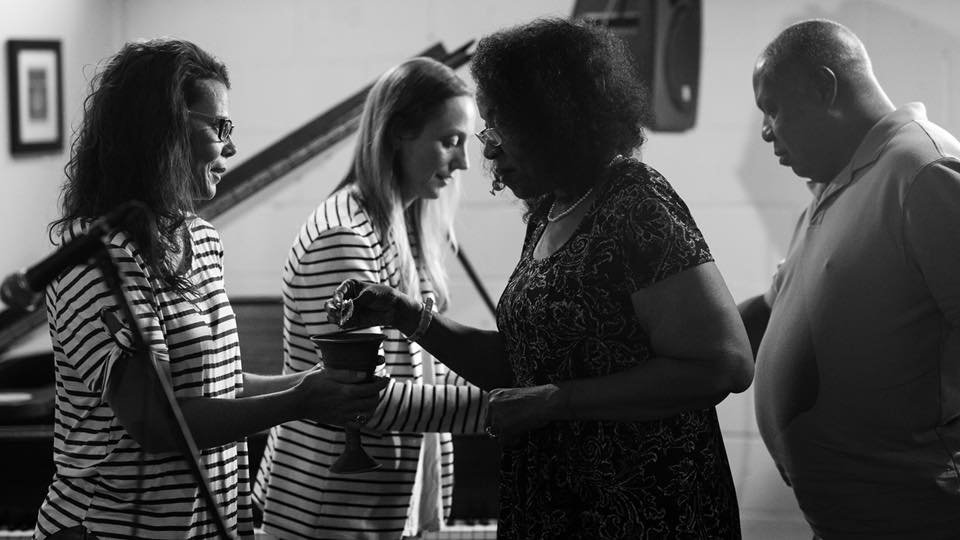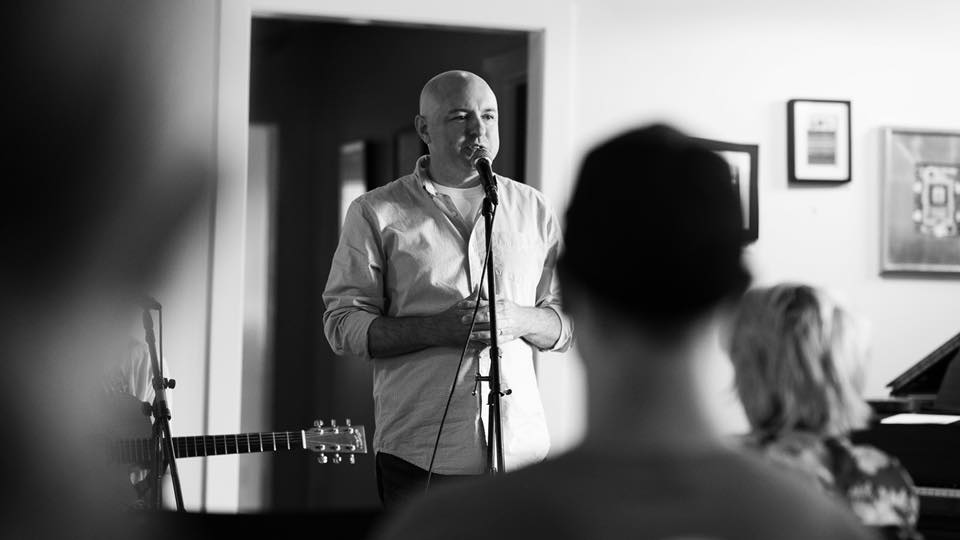The songs that echoed through the Old Armory Pavilion on a chilly fall night did not resemble those of a church service. The singer and electric guitar player embellished and riffed as if a gospel congregation were in a church, although John Lennon’s “Imagine” is a song rarely sung under an altar call.
Then again, the Underground Church is no ordinary church. It hosted a night of protest songs, where musicians played anthems of hope and rebellion against the status quo and for a more idyllic future.The Oxford organization started in August and meets monthly to practice an alternative form of Christianity.
Tony Caldwell, the founder of the church, has worked in the mental health industry for 18 years. His counseling mindset carries through to the church, hoping to provide an open, safe place. While continuing his private practice and starting the church, Caldwell is also working toward a Masters of Divinity from Vanderbilt University.
“It’s sort of a rising up of a new expression of what Christianity could be,” he said of the church. “In my mind, it looks and feels like what the original church was. The focus of concern is communal, not personal.”

Photo courtesy: The Underground Church: A Progressive Christian Community Facebook
The community Caldwell envisions is larger than those who come to the church’s events; he sees everyone as “a child of God.” The outgrowth of this belief is an emphasis on justice, politics and acceptance over dogma.
“Imagine there’s no countries, no borders!” the singer exclaims at the night of worship.
The singer is not the only one to make disapproving nods to the policies associated with the religious right, such as family separation or refusing refugees. Later in the evening, Laurin Stennis spoke about designing a new state flag, declaring the need for “a new logo” that represents all Mississippians.
At the night of protest songs, about 25 people gathered their folding chairs around musicians who took turns playing songs of different eras and outlooks. Down from the 60 or so attendees Caldwell has come to expect at the monthly gatherings at The Edison on Sunday nights, Caldwell has no outward signs of disappointment.
“I never felt led to create another church,” he said. “I think, by design, we are doing everything backwards, doing everything wrong. Every church planning would say that we’re doing everything wrong. I basically just wanted to approach this as creativity and not have expectations.”
The Ole Miss Law Center helped with the paperwork to found the organization. A representative said that was the first time the center assisted an organization determined to keep a balance of zero dollars.
Caldwell said he does not want to have to bend to anyone because of monetary concerns.
“I don’t want to lose anyone, but I have to be authentic. That is just difficult,” he said.
To him, the Underground Church is an invention of necessity. Caldwell and his family, a wife and son, could not find a religious community that they did not have to hide in some way to be accepted; they were never comfortable enough to invite others to join them, he said.
“I know there are other people out there who are sort of spiritually passing and doing what they have to do to fit in and not lose community,” he said. “If they had a place to be, they might want to come be a part of what we’re doing.”
Hannah Gambrell is a member of the church and said this church community came at a perfect time after she was rejected from her past Christian community.
“They are creating a space for all and letting it known fearlessly and boldly,” Gambrell said. “I’ve been so touched by this church only in the few short months I’ve been a part of it.”
Caldwell said people want to see a new kind of Christianity. He said he believes that progressive denominations in the area choose to advertise their beliefs as “affirming” or “inclusive” to separate themselves from the racial, sexual orientation or income barriers in traditional Christianity that he said “feel like a caste system.” He said these terms are only trying to progress from a regressive place; he wants to start something “completely divested” from the original barriers.

Tony Caldwell, the founder of the Underground Church, seeks to provide an environment of openness and welcomeness for everyone. Photo courtesy: The Underground Church: A Progressive Christian Community Facebook
“This is a place of complete equality,” he said. “It’s important to me to be multicultural and multiracial from the get-go.”
In some ways, the Underground Church is set apart from others in Oxford. The setting is unlike others, in a workspace with couches and rolling office chairs. Caldwell himself, far from a slick salesman of a new ideology, preaches without loud calls to believe definitive theologies.
In many ways, though, the Underground Church is a place created out of the dirtiest parts of a dying form of Christianity.
Caldwell said conservative Christians of the past and present have much to do with deep segregation, inner-generational poverty, sweeping anti-gay bills and other areas of concern he sees within America today. He said the Bible belt is the execution belt, is the mass incarceration belt — they’re all the same.
“The deeper spiritual reason for doing what we’re doing is to be the opposite of that,” he said. “We’ve got to start somewhere.”






